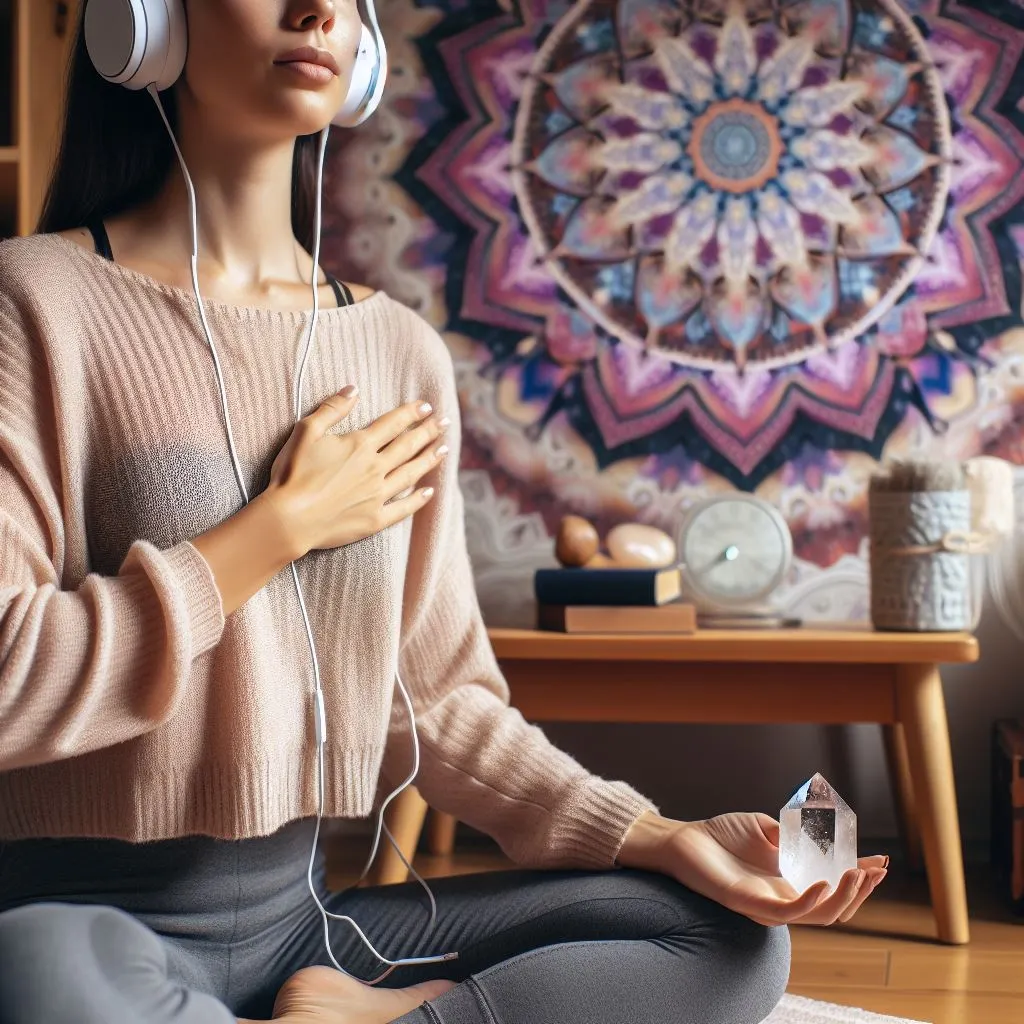Hello, peeps! Let’s chat about hypnosis for self-love. Ever thought about how you could use hypnosis to boost your self-love? It’s like giving your mind a little pep talk to feel more awesome about yourself. Today, we’re gonna explore two easy methods you can try right at home. So, get comfy, and let’s dive into the world of self-love hypnosis!
I Also recomend to you this book that is i think so best for you “Self Hypnosis for a Better Life” by “by William W. Hewitt” because its practical guide that provides step-by-step instructions for using self-hypnosis to improve various aspects of your life.
1. Visualization Technique
Visualization is a hypnosis technique that involves creating mental images to promote self-love. These are the steps that i am sharing with you!
- Find a quiet and comfortable place to relax. Sit or lie down in a comfortable position and close your eyes.
- Take a few deep breaths and focus on your breathing. Inhale slowly and deeply through your nose, hold for a few seconds, and then exhale slowly through your mouth.
- Begin to visualize yourself as a loved and valued individual. Imagine yourself surrounded by love and support from others. You may also imagine a warm, golden light enveloping your body, filling you with a sense of peace and self-love.
- As you continue to visualize yourself, focus on the positive qualities that make you unique and special. Recall times when you felt proud of yourself or accomplished something important.
- Use all of your senses to enhance the visualization. Imagine the sights, sounds, and feelings associated with self-love. For example, you may imagine yourself receiving a warm hug from a loved one or hearing words of encouragement and praise.
- Take a few moments to savor the feelings of self-love and self-acceptance. Allow yourself to fully experience the positive emotions associated with this mindset.
- When you feel ready, slowly bring your awareness back to the present moment. Open your eyes and take a few deep breaths.
Visualization can be a powerful tool for increasing self-love, as it allows individuals to tap into their subconscious mind and create positive associations with themselves.
According to a study published in the Journal of Clinical Psychology, visualization can help to improve self-esteem and reduce symptoms of depression (Abbott & Wheeler, 2003).
2. Progressive Relaxation Technique
The Progressive Relaxation Technique is a form of hypnosis that can help to cultivate self-love by promoting relaxation and reducing stress. Here’s how it works:
- Find a quiet and comfortable place to relax. Sit or lie down in a comfortable position and close your eyes.
- Take a few deep breaths and focus on your breathing. Inhale slowly and deeply through your nose, hold for a few seconds, and then exhale slowly through your mouth.
- Begin to focus on each part of your body, starting with your toes. Tense the muscles in your toes for a few seconds, and then release the tension and allow your toes to relax.
- Move up to your feet, and repeat the process of tensing and releasing the muscles. Continue to work your way up your body, focusing on each muscle group in turn. This may include your calves, thighs, hips, abdomen, chest, arms, hands, neck, and face.
- As you release the tension in each muscle group, imagine any negative thoughts or emotions leaving your body along with the tension. Replace them with positive thoughts and feelings of self-love and acceptance.
- Take a few moments to enjoy the feeling of total relaxation. Focus on your breathing and allow yourself to fully relax and let go of any remaining tension.
- When you feel ready, slowly bring your awareness back to the present moment. Open your eyes and take a few deep breaths.
According to a study published in the Journal of Counseling and Development, progressive relaxation can help to improve self-esteem and reduce symptoms of anxiety and depression (Ross & Thomas, 1986).
Does Hypnosis Really Work?

Yes, hypnosis can be an effective tool for a variety of issues, including anxiety, pain management, and self-improvement. According to the American Psychological Association (APA), hypnosis can be defined as a state of highly focused attention or concentration, often associated with relaxation, and heightened suggestibility (American Psychological Association, 2018).
Research has shown that hypnosis can be an effective treatment for a variety of conditions, including:
- Pain management: Hypnosis has been found to be an effective tool for managing chronic pain.
- Anxiety: Hypnosis has been shown to be an effective treatment for anxiety disorders, including generalized anxiety disorder and phobias.
- Self-improvement: Hypnosis can be used to promote self-improvement, including increasing self-esteem and confidence.
References
Gorassini, I., & de Pascalis, V. (1996). Efficacy of hypnotic treatment of generalized anxiety disorder: A meta-analysis of controlled clinical trials. Journal of Anxiety Disorders, 10(5), 455-464.
Kirsch, I., Montgomery, G., & Sapirstein, G. (1995). Hypnosis as an adjunct to cognitive-behavioral psychotherapy: A meta-analysis. Journal of Consulting and Clinical Psychology, 63(2), 214-220.
Montgomery, G. H., DuHamel, K. N., & Redd, W. H. (2000). A meta-analysis of hypnotically induced analgesia: How effective is hypnosis? International Journal of Clinical and Experimental Hypnosis, 48(2), 138-153.
Ross, S. I., & Thomas, S. P. (1986). The relationship between self-esteem and anxiety: The contribution of progressive relaxation training. Journal of Counseling and Development, 64(5), 425-428.
Abbott, R., & Wheeler, S. (2003). The relationship between imagery ability, self-esteem, and depression. Journal of Clinical Psychology, 59(8), 883-895.
Critcher, C. R., & Dunning, D. (2015). Self-affirmation as a means of self-protection: A review and new directions. Current Directions in Psychological Science, 24(1), 46-52.


